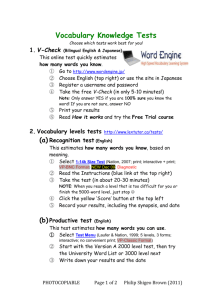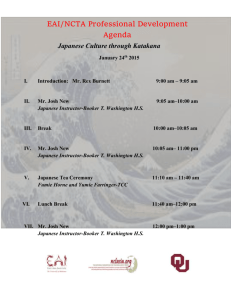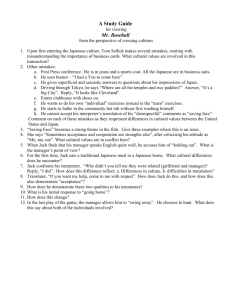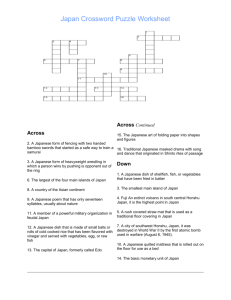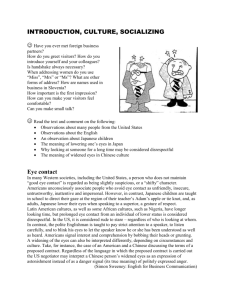fun with numbers 4-6-4-9
advertisement
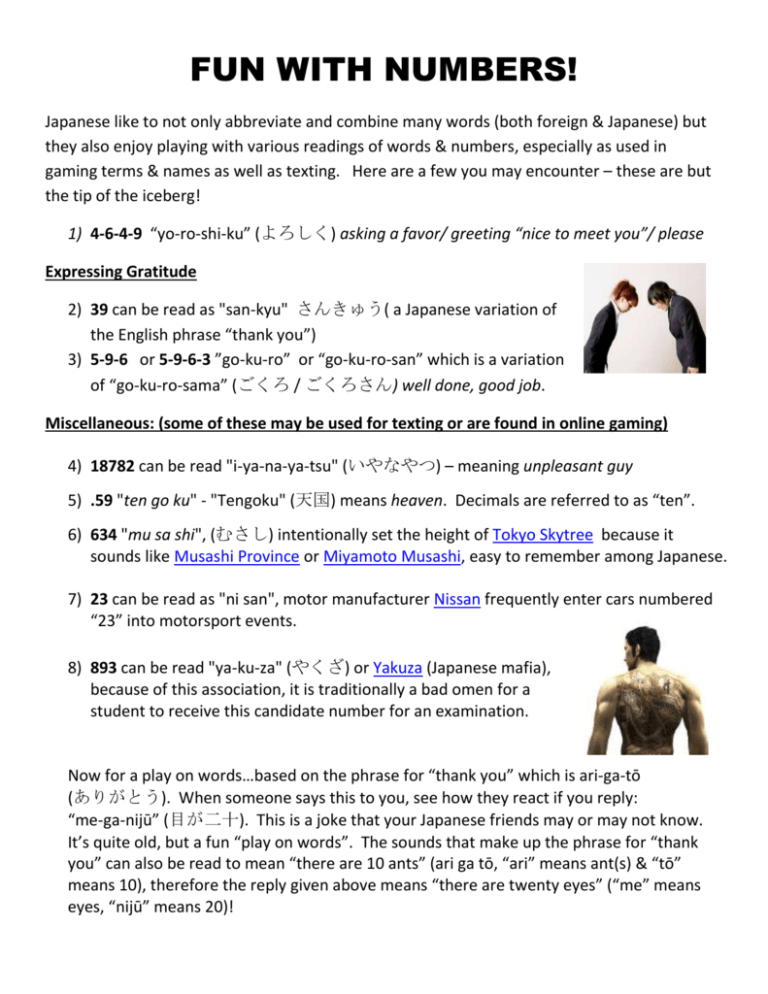
FUN WITH NUMBERS! Japanese like to not only abbreviate and combine many words (both foreign & Japanese) but they also enjoy playing with various readings of words & numbers, especially as used in gaming terms & names as well as texting. Here are a few you may encounter – these are but the tip of the iceberg! 1) 4-6-4-9 “yo-ro-shi-ku” (よろしく) asking a favor/ greeting “nice to meet you”/ please Expressing Gratitude 2) 39 can be read as "san-kyu" さんきゅう( a Japanese variation of the English phrase “thank you”) 3) 5-9-6 or 5-9-6-3 ”go-ku-ro” or “go-ku-ro-san” which is a variation of “go-ku-ro-sama” (ごくろ / ごくろさん) well done, good job. Miscellaneous: (some of these may be used for texting or are found in online gaming) 4) 18782 can be read "i-ya-na-ya-tsu" (いやなやつ) – meaning unpleasant guy 5) .59 "ten go ku" - "Tengoku" (天国) means heaven. Decimals are referred to as “ten”. 6) 634 "mu sa shi", (むさし) intentionally set the height of Tokyo Skytree because it sounds like Musashi Province or Miyamoto Musashi, easy to remember among Japanese. 7) 23 can be read as "ni san", motor manufacturer Nissan frequently enter cars numbered “23” into motorsport events. 8) 893 can be read "ya-ku-za" (やくざ) or Yakuza (Japanese mafia), because of this association, it is traditionally a bad omen for a student to receive this candidate number for an examination. Now for a play on words…based on the phrase for “thank you” which is ari-ga-tō (ありがとう). When someone says this to you, see how they react if you reply: “me-ga-nijū” (目が二十). This is a joke that your Japanese friends may or may not know. It’s quite old, but a fun “play on words”. The sounds that make up the phrase for “thank you” can also be read to mean “there are 10 ants” (ari ga tō, “ari” means ant(s) & “tō” means 10), therefore the reply given above means “there are twenty eyes” (“me” means eyes, “nijū” means 20)!
